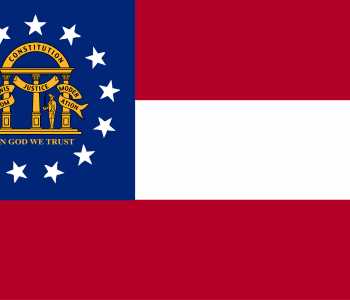How to Become a Federal Contractor

Small businesses may have a tough time finding success, but one of the benefits they can take advantage of is becoming a federal contractor with the U.S. government.
At first, working directly with the federal government may sound intimidating, but in fact, they are the world's largest customer. Every year, the government spends hundreds of billions of dollars to satisfy the necessities of both the military and federal agencies around the country. Out of that spending, 23% of contracts are awarded to small business, so there's certainly a piece of the pie at stake if you can learn how to get involved in the process.
The good news is that becoming a federal contractor is a lot easier than you think. As long as you meet certain standards and keep your business up-to-date with the latest compliances, you can enjoy a consistent revenue stream with tons of possibilities for growth.
If you're ready to prepare your business for a new world of opportunities, then here's what you need to do to become a federal contractor:
Locating Industry Codes and Registering Your Business
With a firm strategy in place, you're now ready to locate your correct industry code and register your business for the right databases.
Finding Your North American Industry Classification System Code
In order to bid on federal contracts, you have to know your North American Industry Classification System (NAICS) code.
This is a six-digit number that helps government agencies identify your business when they look to award contracts. To find your code, click the NAICS link and use the search bar on the left-hand side to enter in keywords related to your industry. After you run the search, a list of business activities will appear and you can locate which one best suits your products and services. Write this down and keep it on-hand for later.
Obtaining Your Data Universal System Code
After you find your NAICS code, you need to obtain your nine-digit Data Universal System (DUNS) code.
This code is managed by Dun & Bradstreet so that the federal government can look into your business's credit history. You won't be able to compete for federal contracts unless you have a DUNS code, but registration is free for all federal contractors and fairly simple to set up.
Registering Your Business for the System for Award Management
Lastly, you must register your business in the System for Award Management (SAM).
You will use your new SAM account to bid on federal contracts and maintain your business's information, certifications, and compliances so that government agencies can verify them quickly if and when you're selected for a project.
Keeping your SAM profile updated is crucial, so make sure to create your free account and make it habit to check it on a regular basis.
Bidding On Federal Contracts
With your registration complete, you're now ready to start bidding on federal contracts.
Using the same resources from your initial planning phases, you can begin searching for contracting opportunities that match your profile. Feel free to browse postings on...
• Contracting Opportunity Finder page
• Search through listings by individual agencies
• FedBizOpps
You can even sign up to receive notifications on your account so you can apply for any new opportunities as soon as they show up.
Solicitation vs. Pre-Solicitation
Once you find a project that seems like a good fit, it's important to read all of the information pertaining to the contract so you understand what's required of you and how you can plan accordingly.
This is especially the case when it comes to postings that label themselves as either a "solicitation" or "pre-solicitation."
The ladder is only a request for information about your business, not actually a request for a bid, so try your best to distinguish the two so you can start applying for opportunities that are ready to pull the trigger.
Consult with a PCR
Before you fill out your proposal and submit all the necessary documentation and pricing info, it's always a good idea to consult with a PCR to ensure that everything is correct.
You don't want to lose out on a major client just because you filled out a form wrong or made a mistake with your pricing. A PCR will make sure everything is correct and put you in the best position to succeed.
In fact, the main reason why small businesses miss out on federal contracts is because proposals are filled out incorrectly or are missing information.
Waiting for a Response
After you submit your bid, it can take anywhere from 30 to 120 days to get a response.
A contracting officer (CO) goes through every proposal and they gauge how successful a business will be in delivering results. For example, contracts are typically awarded on the following criteria:
• The terms and pricing of the proposal
• References showcasing the success and reputation of a business
• The overall responsiveness of a business
Once your proposal is evaluated, a government representative may contact you to discuss next steps, or you may receive notice that your proposal was rejected. In any case, don't lose hope if you don't land your first few projects. Working as a federal contractor takes time, and if you can remain steadfast, you'll no doubt land a contract that's worth your while.







